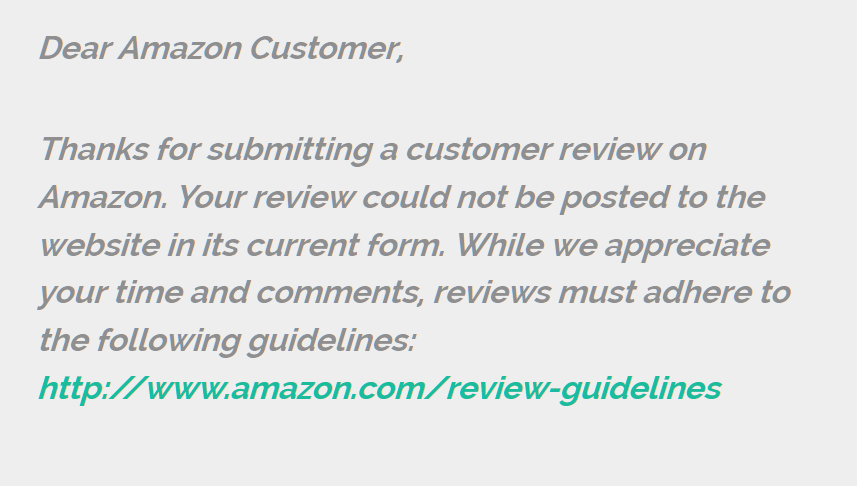Independent author and blogger Imy Santiago bought an e-book from Amazon, read it, and posted a review. Then things started to go awry, according to her recent blog post, that had Amazon pull the review because she followed the author on Twitter.
Amazon’s Review Guidelines state that only that “family members or close friends of the person, group, or company selling on Amazon may not write Customer Reviews for those particular items.” It doesn’t mention interactions on social media services such as Facebook, Twitter or Pinterest.
So how does Amazon decide who an author’s friends are? In theory, the company could be looking for things like similar last names or residential information on accounts, or watching for patterns in review activity, like a back-and-forth exchange of reviews between two authors. Amazon may also be able to look for contacts and interaction on social media accounts that users have connected to their Amazon account, or they may be doing something else entirely. So far, they refuse to talk about it.
“Due to the proprietary nature of our business, we do not provide detailed information on how we determine that accounts are related,” Amazon’s review moderator told Santiago in that final email, helpfully adding another link to the company’s Review Guidelines.
That secrecy is raising questions among authors and reviewers. “Where is the ‘oh, you know the author, your thoughts are no longer valid’ line? Are fans who attend events and meet me ineligible?” asked author Seanan McGuire on Twitter, adding that she often interacts with fans on social media and at conventions. “Do I need to avoid friendly Twitter banter or at-con selfies with bloggers to keep them from ‘knowing’ me and thus being blocked?”
Princess S.O. Obriot has also been a victim of Amazons draconian review policies “I’ve had several reader fans message me that their reviews were blocked. One of them was persistent to find out why and finally got a response. He had entered a drawing I had going and he won an Amazon Gift card. He used it to buy more books from a variety of authors. He already owned mine so I wasn’t among the purchases. but because I had sent the GC from my Amazon account that translated into “He knows this author personally.” It’s been two years since then, he still attempts to leave reviews and continues to ‘nag’ them about it. But so far Amazon has not appealed their ruling on it.
Indie authors often find themselves spending a massive amount of time interacting with their fans and readers in order to build up a fan base and sell more books. This could be a double edged sword if the interactions can easily be found online. The author will see their efforts as organic, fostering meaningful dialog and creating strong bonds between writer and reader, whereas Amazon sees it as collusion.
This entire debacle is likely due to a new review policy Amazon has implemented over the course of the last few months. This is the first major initiative in Amazons twenty year history to revise the way the product review system works. A new in-house machine learning program is putting more weight on verified purchases, new reviews and reviews that people have rated as being useful. The system will learn what reviews are most helpful to customers…and it improves over time,” Amazon spokeswoman Julie Law said in an interview. “It’s all meant to make customer reviews more useful.”
Michael Kozlowski is the editor-in-chief at Good e-Reader and has written about audiobooks and e-readers for the past fifteen years. Newspapers and websites such as the CBC, CNET, Engadget, Huffington Post and the New York Times have picked up his articles. He Lives in Vancouver, British Columbia, Canada.
